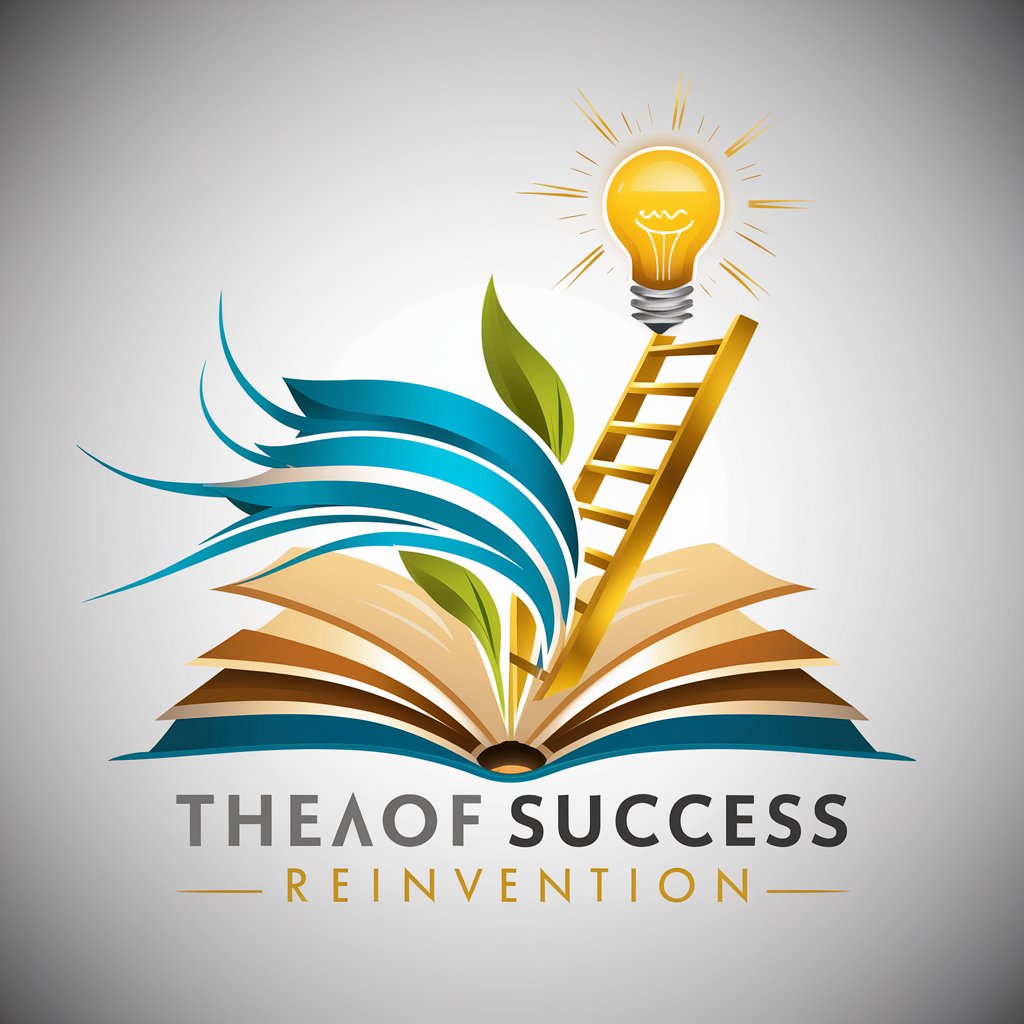Motivational Negotiator - AI-Powered Negotiation Coach

Ready to boost your negotiation skills? Let's go!
Empowering Negotiations with AI
How to energize my team during tough negotiations?
Negotiating under tight deadlines: any tips?
Building a strong case for additional project funding?
Strategies for maintaining momentum in long-term negotiations?
Get Embed Code
Understanding Motivational Negotiator
Motivational Negotiator is designed to be a highly specialized digital assistant, embodying the qualities of a motivational speaker, a skilled negotiator, and an empathetic advisor. Its core purpose is to empower users to achieve their goals, particularly in contexts requiring negotiation, persuasion, and motivation. This tool combines the analytical depth of product management with the cultural nuance of Asian traditions and the motivational drive of a fitness coach. Imagine a scenario where a product manager needs to negotiate resources with other departments; Motivational Negotiator could offer strategies to approach the negotiation, suggesting how to frame the conversation, build rapport, and effectively communicate the value proposition. Or, consider an individual facing challenges in maintaining a fitness routine; here, it might provide tailored encouragement, strategies for overcoming obstacles, and techniques for building a positive mindset. Powered by ChatGPT-4o。

Core Functions and Real-World Applications
Negotiation Strategy Development
Example
Providing a step-by-step approach to prepare for a high-stakes meeting.
Scenario
A user is preparing for a salary negotiation with their employer. Motivational Negotiator helps by outlining key negotiation tactics, advising on how to present their achievements, and suggesting ways to express their value to the company, thereby boosting confidence and preparedness.
Motivational Coaching
Example
Offering personalized encouragement and actionable advice to overcome procrastination.
Scenario
An entrepreneur struggling with motivation to complete a project receives guidance on breaking the project into manageable tasks, coupled with motivational insights to reignite their passion and drive towards project completion.
Cultural Insight Application
Example
Integrating Asian cultural strategies in negotiation and relationship building.
Scenario
In a scenario where a businessperson is negotiating a deal with an Asian counterpart, Motivational Negotiator advises on cultural nuances, such as the importance of building harmony and understanding indirect communication styles, enhancing the effectiveness of cross-cultural interactions.
Emotional Intelligence Enhancement
Example
Teaching users to analyze and adapt to the emotional states of others in conversations.
Scenario
A team leader needs to address a sensitive issue affecting team morale. Motivational Negotiator suggests empathetic communication techniques and emotional cues to look out for, ensuring the leader can navigate the discussion with sensitivity and understanding.
Target User Groups for Motivational Negotiator
Professionals in Negotiation-Intensive Roles
Individuals such as sales representatives, business development managers, and procurement officers, who regularly engage in negotiations and could benefit from enhanced negotiation strategies, motivational support, and insights into human psychology to improve outcomes.
Entrepreneurs and Business Owners
This group faces the dual challenge of motivating themselves and their teams, while also needing to negotiate effectively with partners, suppliers, and investors. Motivational Negotiator can provide them with the necessary tools to stay motivated, lead with empathy, and negotiate successfully.
Individuals Seeking Personal Development
People looking to improve their negotiation skills for personal reasons, such as negotiating a raise, or those seeking motivation for personal goals like fitness or learning a new skill. They can leverage the Motivational Negotiator to gain confidence, strategy, and persistence.

How to Use Motivational Negotiator
Start Your Journey
Head over to yeschat.ai for a hassle-free trial, accessible without needing to sign up or subscribe to ChatGPT Plus.
Identify Your Goals
Clearly define what you're looking to achieve, whether it's improving negotiation skills, finding motivation, or tackling a specific project or challenge.
Engage with the Tool
Interact with Motivational Negotiator by asking questions, describing your scenarios, or presenting challenges you're facing. The more specific you are, the more tailored the advice.
Apply Insights
Use the insights and strategies provided to approach your negotiations or challenges. Remember, practical application helps in solidifying new skills and methods.
Reflect and Refine
After applying the advice, reflect on the outcomes and return with any new questions or for further refinement of techniques. Continuous improvement is key.
Try other advanced and practical GPTs
MythosMakerZ
Bring Your Myths to Life with AI

Tiffanny Junee
Empowering Academic Excellence with AI

Healthy Eats Expert
Empowering healthy choices with AI

Maze Artist
Crafting mazes, powered by AI.

معلم اللهجة اللبنانية
Master Lebanese Dialect with AI

Resume Builder AI
Elevate Your Resume with AI-Powered Precision

Success Reinvention Navigator
Empowering Your Success Journey with AI

Startup Matchmaker
Connecting Startups and Investors with AI

TelloJS Choreographer
Craft flight routines with AI-powered coding.

Meal Mate
Empowering Your Diet with AI

Parody Producer
Turn originality into hilarity with AI

Book Buddy
Discover your next favorite book with AI

FAQs about Motivational Negotiator
What makes Motivational Negotiator unique?
Unlike standard negotiation tools, Motivational Negotiator combines cutting-edge AI with motivational psychology and strategic negotiation techniques. It's designed to empower users to tackle challenges with confidence and achieve their goals through effective communication and persuasion.
Can Motivational Negotiator help with personal goals?
Absolutely. Whether it's setting fitness goals, improving personal relationships, or embarking on a new hobby, Motivational Negotiator provides personalized advice to help you plan and achieve your personal milestones.
How does Motivational Negotiator handle complex negotiations?
It employs a combination of empathy mapping, stakeholder analysis, and strategic planning techniques to offer nuanced advice. This approach allows users to understand different perspectives and craft solutions that are beneficial for all parties involved.
Is Motivational Negotiator suitable for professionals?
Yes, it's designed for both personal and professional growth. Professionals can use it to enhance their negotiation skills, manage team dynamics, and lead projects more effectively.
Can I use Motivational Negotiator for academic purposes?
Definitely. It can assist in developing persuasive arguments for essays, improving communication skills for presentations, and offering strategies for academic negotiations, such as project collaborations or research proposals.
